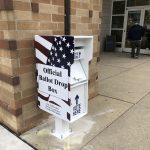The Money Behind the Mining Bill
Is it $15 million in campaign contributions? The tally is inexact, but it's way more than environmentalists donate.
About 12 hours into the Jan. 23 state legislative hearing on a proposed bill to revamp the state’s metallic mining laws, a citizen who’d waited all day gave some unwelcome testimony.
“Where did this bill come from?” asked Victoria McMurray, rhetorically. “Big business is taking over our government by making campaign contributions and the legislative recipients are responding by allowing laws to pass that hurt our state and enrich donors.”
McMurray began listing donation totals to legislators from pro-mining interests, as culled from the nonpartisan Wisconsin Democracy Campaign’s contribution database. State Sen. Tom Tiffany, R-Hazelhurst, interrupted to say, “You need to write a letter to the editor.” Then, after McMurray finished and one other speaker was heard, he gaveled the hearing to a close, with dozens of people still waiting.
The Democracy Campaign subsequently reported that mining bill proponents have given more than $15 million since 2010 to Scott Walker, who was elected governor that year, and to current members of the state Legislature. Meanwhile, only about $25,000 has flowed from environmental groups registered against the bill.
Here’s how the Democracy Campaign phrased it: “Walker, who has campaigned around the state to gin up support for changing rules to attract mining projects, received $11.34 million.” This compared to just $650 to Walker from environmental groups opposed to the bill.
Cullen Werwie, the governor’s press secretary, declined to comment on the report, saying only: “Gov. Walker supports reforming the mining process to allow for safe and environmentally sound mining in Wisconsin, which will create thousands of new private sector jobs.”
Yet the methodology used to produce such tallies is open to question.
If Acme Corp. belongs to Wisconsin Manufacturers & Commerce, a lobby group that backs the bill, then the $200 that Acme employee Joe Blough gave to state Sen. Wile E. Coyote would count as a pro-mining contribution — even if Blough opposes the mining bill, and only gave because Coyote is a loyal Acme customer.
Mike McCabe, the Democracy Campaign’s executive director, calls the analysis “as surgical as the data allow us to be.” Donors don’t have to say why they give, but they are supposed to say where they work, for contributions of more than $100. That’s a useful tool, in an inexact science.
A few years back, for example, a state senator objected to a donation from his mother being tallied as special interest cash, because of where she worked. Says McCabe, “I’d be the first to acknowledge that she may have had other reasons for contributing.”
The Democracy Campaign lists Sen. Alberta Darling, R-River Hills, as getting $467,000 from mining bill proponents, more than any other lawmaker. The Democrat with the highest listed take is state Rep. Sandy Pasch, of Shorewood, with $73,000.
Darling, vice-chair of the Senate committee that oversees mining, backed a similar mining bill introduced last session. Pasch voted against it and rips the current bill as coming from “politically connected mining interests.” Both lawmakers, McCabe says, have high receipts due to their hotly contested 2011 state Senate recall race — against each other.
But the Democracy Campaign uses the same system as such respected national money trackers as the Sunlight Foundation and the Center for Responsive Politics. McCabe says his group may be more selective, only counting contributions from interest group subcategories like “mining,” not broad categories like “natural resources.”
Moreover, McCabe notes, interest groups cast the same wide net when testifying on proposed legislation: They purport to speak for their members, and all those their members employ or represent.
And, just maybe, laying claim to all that backing makes it easier to be heard.
The nonprofit Wisconsin Center for Investigative Journalism (www.WisconsinWatch.org) collaborates with Wisconsin Public Radio, Wisconsin Public Television, other news media and the UW-Madison School of Journalism and Mass Communication. This story was a produced in collaboration with Wisconsin Public Television.
All works created, published, posted or disseminated by the Center do not necessarily reflect the views or opinions of UW-Madison or any of its affiliates.
-
Legislators Agree on Postpartum Medicaid Expansion
 Jan 22nd, 2025 by Hallie Claflin
Jan 22nd, 2025 by Hallie Claflin
-
Inferior Care Feared As Counties Privatize Nursing Homes
 Dec 15th, 2024 by Addie Costello
Dec 15th, 2024 by Addie Costello
-
Wisconsin Lacks Clear System for Tracking Police Caught Lying
 May 9th, 2024 by Jacob Resneck
May 9th, 2024 by Jacob Resneck






















We’ve all heard it a thousand times if we’ve heard it once… Figures don’t lie, but liars figure. Cherry picking data to make a point is the easier way to plead one’s case. While I’m sure more money flowed in to support the mines, it’s hard to venture what the true breakdown was.